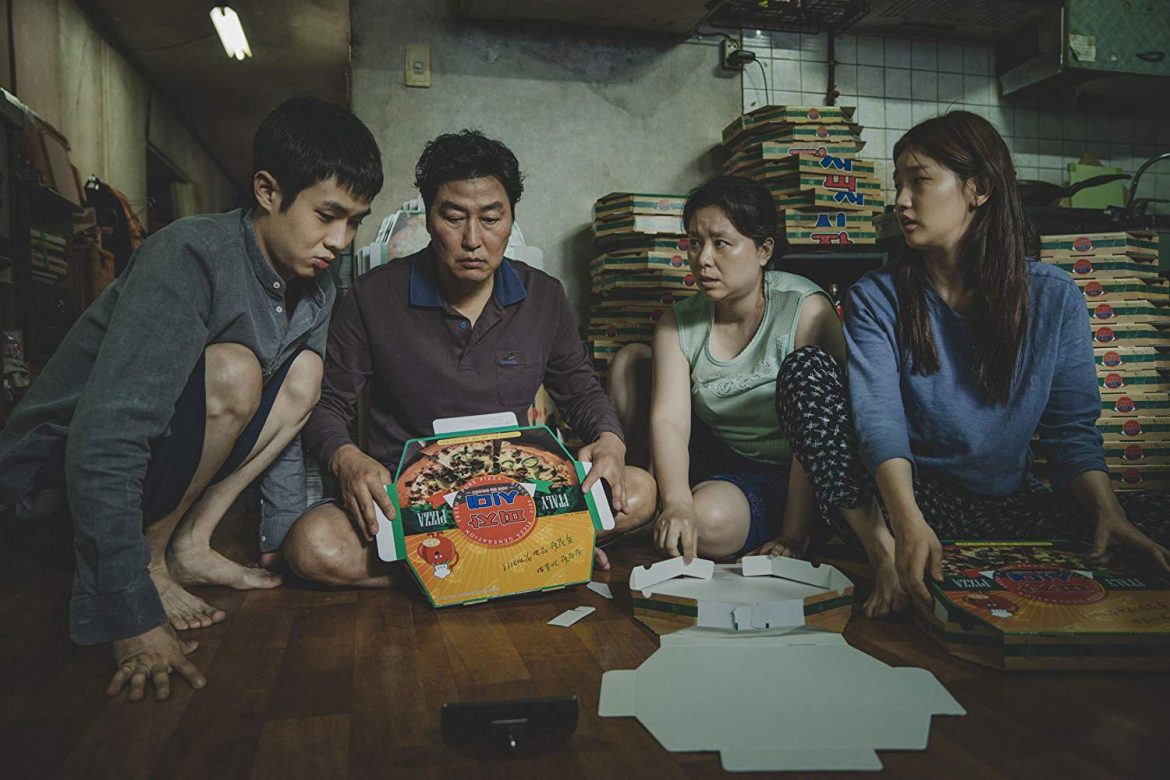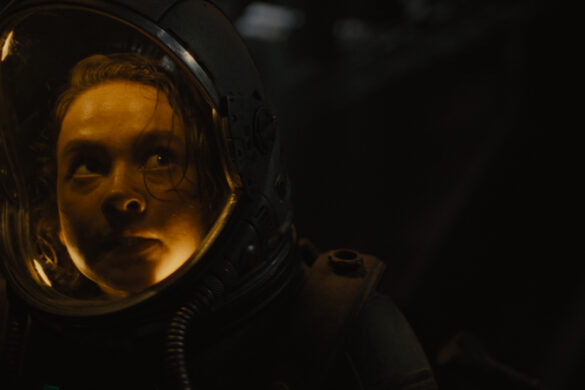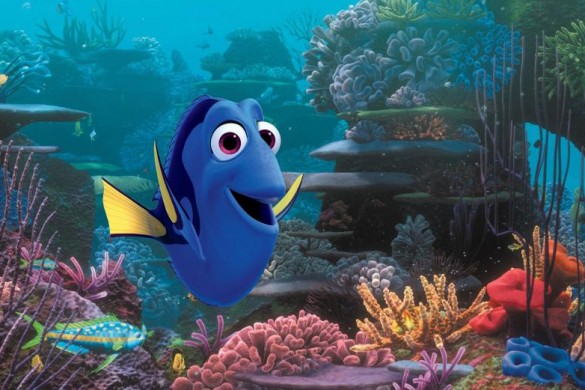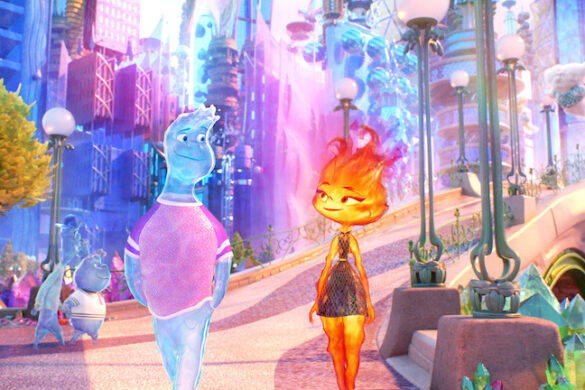If there is one film that absolutely devours the screen, it would have to be Bong Joon-Ho’s Parasite. A darkly comedic, and yet ever so tragic, look at systemic class warfare that could not have been released at a more perfect time, the film serves as an allegory for the toxicity of social statuses and materialistic delusions of grandeur.
Parasite is not a psychological thriller in the traditional sense, but one that patiently eats at your nerves by having the walls slowly close in on both the audience and the characters. Furthermore, it is unpredictable in every imaginable way, as the film goes in all sorts of directions to keep you guessing about what will happen to all of these characters in the next frame.
The film centers on two families. The Kims, a family who is down on their luck and unable to hold a steady job, even one as simple as folding up pizza boxes. But if there is something that they do have, it is their smarts. They know how to play to people’s emotions and take advantage of their naivety. Then there are the Parks, a wealthy family whose arrogance is matched by their naivety. They could have everything they have ever wanted, and more. If there is one thing they have in common, it’s their love for their family.
And though these two families would never break bread together if they actually knew each other, their lives will slowly be intertwined.
When Ki-woo (Choi Woo-Sik), the son of the Kim family, is given the chance to tutor English to Da-Hye Park (Jung Ji-so) a young girl of the wealthy Park family, he finds that he will be able to sneak the rest of his family in to do various jobs. His sister, sister (Park So-dam) will act as an art therapist tutor to Da-Hye’s younger brother, his father (Song Kang-ho) will chauffeur to the wealthy entrepreneurial patriarch of the Park family, and his mother (Jang Hye-jin) will play the role of housekeeper.
But when an interloper appears, it threatens to ruin the strange relationship between the two families.
Joon-Ho builds a fascinating world that is very grounded in reality. Unafraid to show the toxicities of the social classes, Parasite peers into a world of the haves and have-nots. The Kims live beneath the streets of South Korea in a tiny anemic hovel where a tiny window serves as a view to the outside, which is either filled with drunks or regularly scheduled exterminators filling their home with bug-killing fog. Their living quarters are tight, and they are forced to scour every inch of their home to use a neighbor’s unprotected Wi-Fi network.
The same cannot be said for the Parks, however, live lavishly in their upper-class home that was built by a world-class architect. It has spacious lawns, security gates, and more than enough privacy. They aren’t exactly the type to suffer the same way the Kims do, and their charity does not absolve them of their arrogance. This family doesn’t realize about the other class outside of their own bubble. Not only that, but they seem to denigrate their own staff, behind their backs or under their breath.
And their homes are claustrophobic, both literally and metaphorically. The Kims are prisoners to their fate, looking at life pass them by through a small sliver of a window, while the walls surrounding the Park’s lavish home offers only a view of the blue sky, with their spoiled kids acting as a ball and chain.
But no matter what traps them or the social inequalities, these families live up to the film’s title. It is actually funny to see how the Kims hatch their plan to deceive the Parks, but it is painful to watch them have to sit there silently as their employers just condescend them. But even though the Parks aren’t the most respectable people, the Kim’s aren’t exactly likable people either.
The Kims are the underdogs, no doubt, but their deception makes it harder for the audience to sympathize with them. And the same is for the reverse, as the Parks are just abhorrent people who need to learn about the value of humility and the true meaning of charity. Regardless of which side the audience my align themselves with, it is interesting to see how these characters slowly reveal their true nature.
Joon-Ho doesn’t give us a simple black and white story about the rich and the poor. There are a lot more nuances to that dichotomy that could be seen in each frame and through the various performances and shot selections. Adding to the complexities is the swirling amount of genres that collide with each other in the most beautiful of ways. It’s hilarious and yet tragic. It can also be uplifting and yet depressing. But above all, it is a deeply terrifying and very unpredictable piece of work.
Parasite is a modern look at class warfare that is not only entertaining but also has us question our own morals and ethics about who we are and our place within the social ladder.
Parasite is in theaters October 11, 2019.











